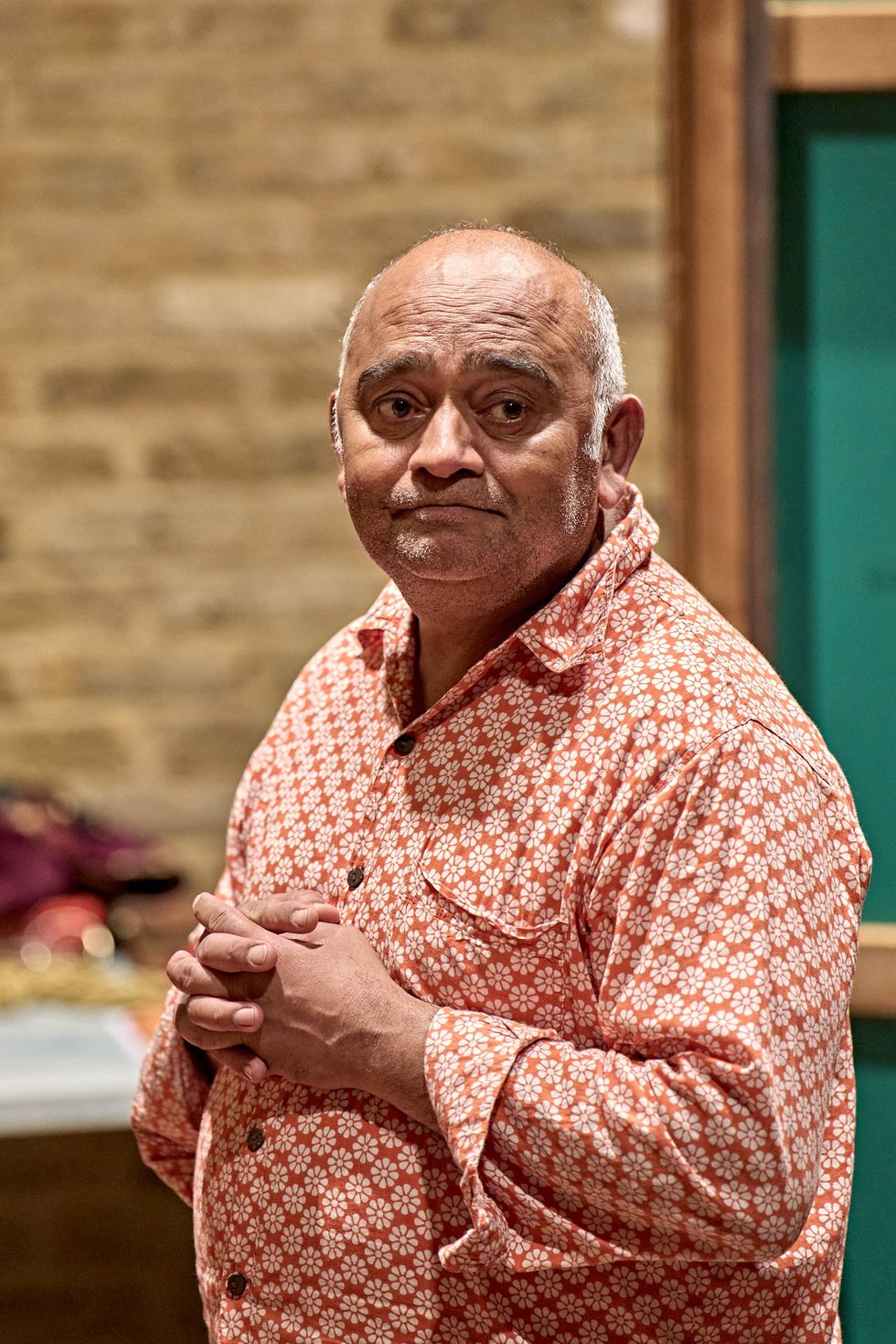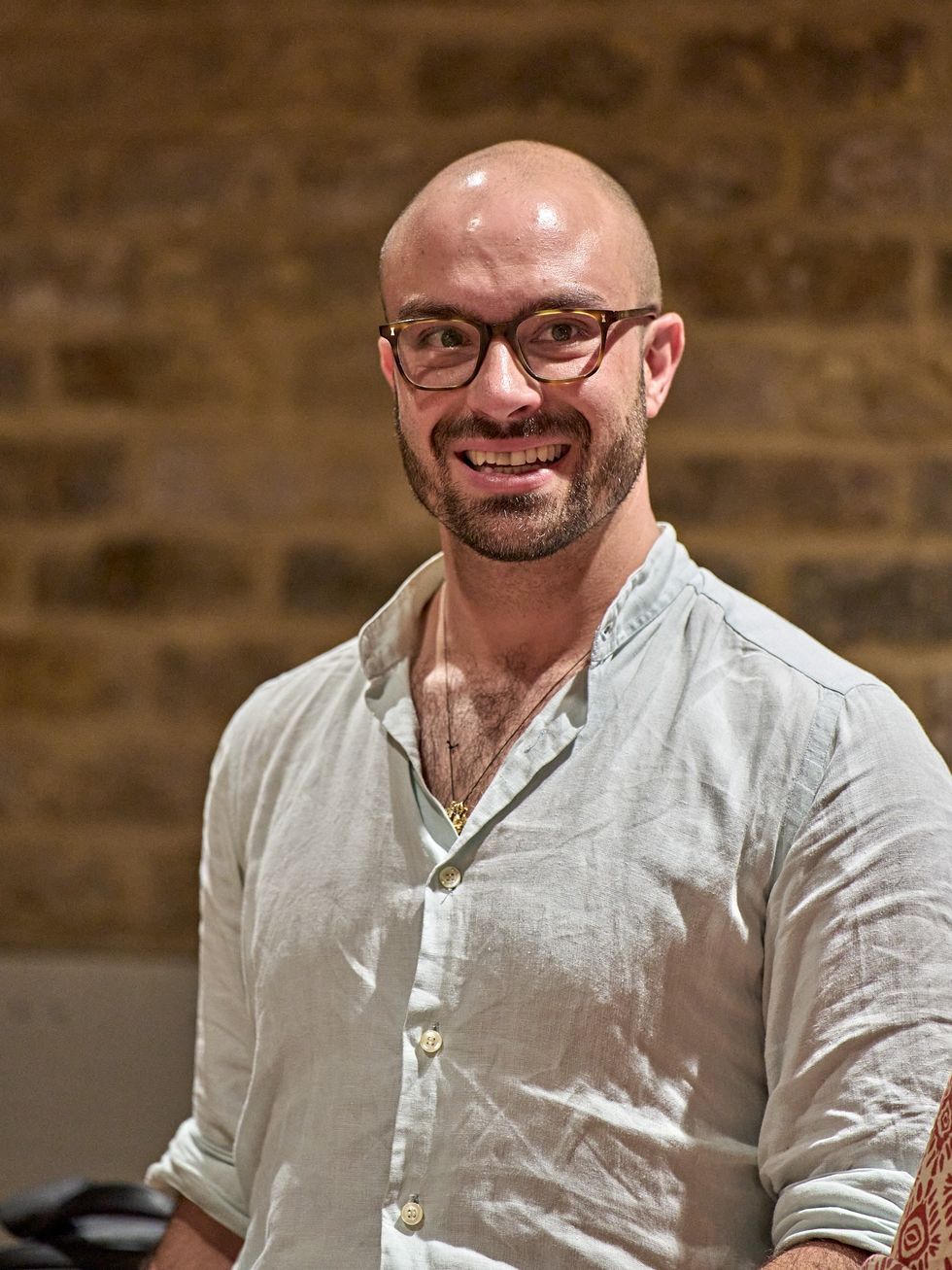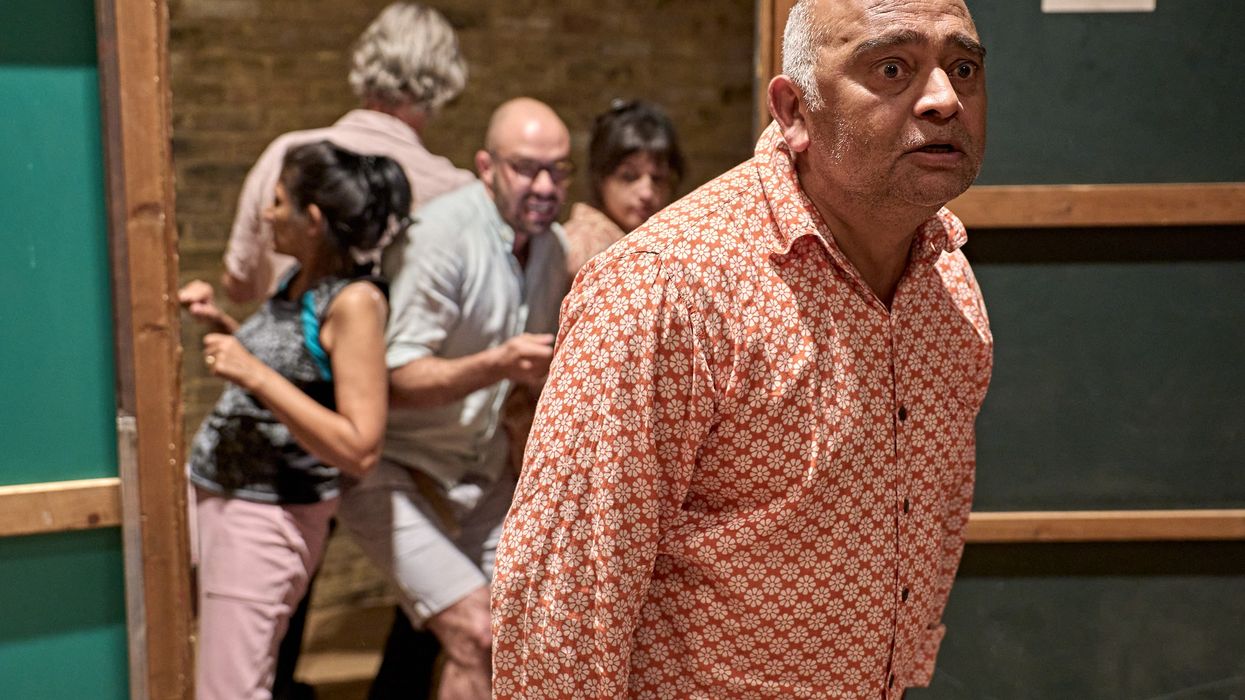Newly premiered play Silence is a powerful stage adaptation of Kavita Puri’s acclaimed book Partition Voices: Untold British Stories.
The theatre production based on testimonies and stories of people who lived through Partition marks 75 years of that brutal moment in history that divided India.
The production is being staged at the Donmar Warehouse and Tara Theatre this month.
Eastern Eye caught up with cast members Bhasker Patel and Jay Saighal during rehearsals to discuss theatre and their play about a key moment in history.
What do you most love about live theatre?
Bhasker: I love the immediacy, exposure, and direct engagement with the audience. There is nowhere to hide with live theatre.
Tell us about Silence and the character you play?
Bhasker: The untold Partition stories of British Asians living here in the UK never got to be heard. I get to portray multiple people in this play with differing voices (who do that). I play a father (a Hindu), who wouldn’t like to relive his horrific experiences, and a Sindhi guy, whose love for Sindh remains, and he regrets leaving. Then another character (a Muslim), who recalls leaving for Pakistan.
How do you approach a new project?
Bhasker: In theatre, projects are always collaborative, so a play such as Silence can’t work without that joint dialogue and understanding.

What can we expect from the show?
Bhasker: Silence will be an eye-opener for everyone, as these voices are never heard, and stories never told from an Indian perspective. It should be taught in a history lesson to everyone.
How important are plays like Silence?
Jay: Incredibly! And for such a plethora of reasons that it’s difficult to distil them into a short answer. It’s vital that painful events in human history are discussed openly so people involved, both directly and indirectly (across generations in this case), can start to heal. And educating ourselves about them is the first step to guarding against such violence happening again. The legacy of colonialism and racism has a direct impact upon inequalities and traumas that are felt to this day – not least in Britain. And growing sectarianism is a worry in both Britain and south Asia right now. The story of Partition warns against both.

Are you learning anything new while preparing for its premiere?
Jay: A huge amount. This project has encouraged me to research Indian history and ask my own family questions about what our relatives had to undergo in Punjab in 1947. And working with such a creative team of people means that I’m constantly learning more about theatrical craft and how to create a production. It’s wonderful to be able to collaborate on a new play too – it means that we all feel even more bonded to it.
How do you feel before going on stage?
Jay: It depends on how far into the run we are. Previews and press nights are very nerve wracking and you’re normally exhausted because you’ve been rehearsing (and changing things you need to remember) during the day and then performing in the evening. But once you’re into a run and know what you’re doing, you relax into it and enjoy it a huge amount. Then you just get exciting butterflies in the stomach.
What according to you is the secret of a good performance?
Jay: Being relaxed and truthfully responding in the moment. It’s tempting to get into a rhythm and try to recreate exactly the same performance every night, but the beauty of theatre is that it’s always different – although within a framework that means you tell the same story and don’t freak out your fellow actors. Oh, and things go wrong. All the time. The key is to forget about the mistakes and carry on.
Why should we all come and watch the play Silence?
Jay: Because it’s a story about how modern India, Pakistan, Bangladesh, and Britain have been created and the people who were there. Because it’s a beautifully moving piece of theatre. Because these stories will disappear if we don’t remember them.
Silence is being staged at Donmar Warehouse, 41 Earlham Street, Seven Dials, London WC2H 9LX until Saturday September 17 and Tara Theatre, 365 Garratt Lane, London SW18 4ES September 21 – October 1. www.taratheatre.com




